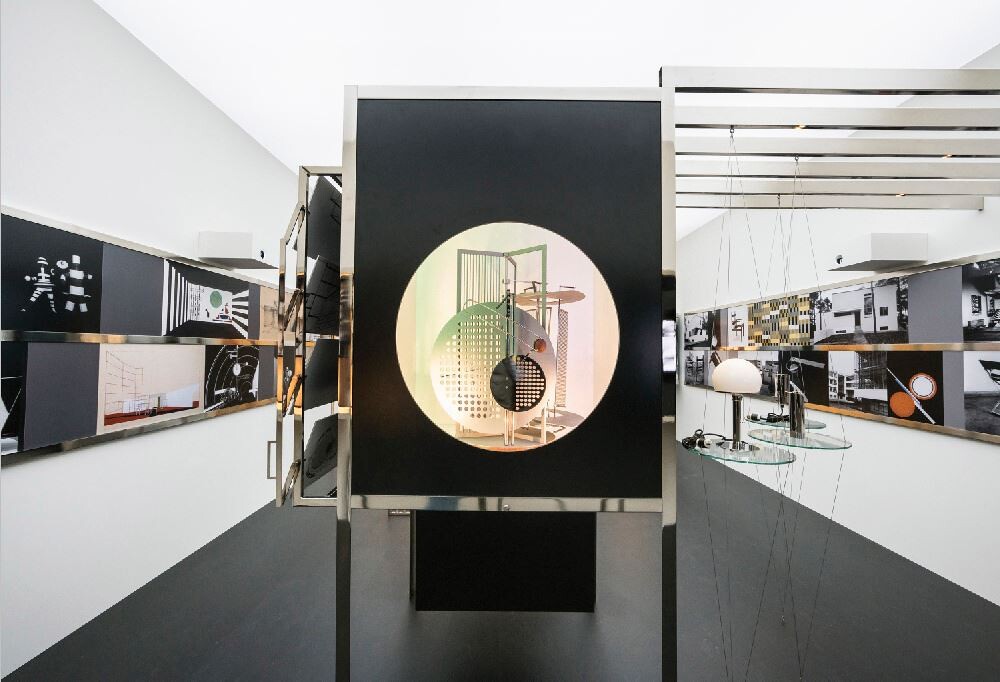Public programs
1071 5th Ave
New York, NY 10128
USA
Moholy-Nagy: Future Present features the work of pioneering artist and educator László Moholy-Nagy (1895–1946) and is the first comprehensive US retrospective of his oeuvre in nearly 50 years. In conjunction with the exhibition, the Guggenheim will offer a series of engaging public programs this summer, including film screenings, a panel discussion, and performance.
Moholy-Nagy: Art for a New Century
Wednesday, June 22, 6:30pm
Bringing together scholars, curators, and an artist, this program explores how László Moholy-Nagy’s experimental and multifaceted practice resonates today more than ever. Presentations by Oliver Botar (University of Manitoba), Carol S. Eliel (Los Angeles County Museum of Art co-organizing curator), and artist Barbara Kasten are followed by a panel discussion. The program is organized by Karole P.B. Vail, Guggenheim co-organizing curator. Includes an exhibition viewing and reception. Tickets.
Moholy-Nagy: Optical Sound
Thursday, July 21, 7pm
In response to what László Moholy-Nagy referred to as an “opto-acoustic alphabet,” this program highlights the fusion of modulated sound and light. To start the evening, program curators R. Luke DuBois and Zach Layton contextualize the event with a presentation in the Guggenheim’s Peter B. Lewis Theater. The talk will be followed by a multimedia performance and a turntable concert. The evening culminates with a large-scale multichannel presentation of innovative Hungarian electronic music from the 1970s. The program aims to create for visitors an experience that exemplifies Moholy-Nagy’s dream of a “groove script.” Includes an exhibition viewing and reception. Tickets.
Films To Come: Moholy-Nagy and the Moving Image
Fridays and Saturdays, through August 27, 11am
This film program includes biographical documentaries on László Moholy-Nagy and the Bauhaus, selections of abstract cinema, modern interpretations of Moholy-Nagy’s scenarios for “Dynamics of the Metropolis,” and works by contemporary filmmakers inspired by the artist. The program concludes with a screening of Things to Come—William Cameron Menzies’s 1936 sci-fi film inspired by H. G. Wells’s novel The Shape of Things to Come—for which Moholy-Nagy created special effects. Free with museum admission.
Credits:
Optical Sound is co-presented with the Balassi Institute Hungarian Cultural Center New York.
Moholy-Nagy: Future Present is organized by the Solomon R. Guggenheim Foundation, the Art Institute of Chicago, and the Los Angeles County Museum of Art. The New York presentation of Moholy-Nagy: Future Present is made possible by Lavazza. Funding is generously provided by David Berg Foundation, Ministry of Foreign Affairs and Trade of Hungary, The Hilla von Rebay Foundation, William Talbott Hillman Foundation, Robert Lehman Foundation, and Sotheby’s. The Leadership Committee for the exhibition, chaired by Peter and Dede Lawson-Johnston, is gratefully acknowledged for its support, with special thanks to Stefan Edlis and Gael Neeson, Rachel and Jean-Pierre Lehmann, Rowland Weinstein, Fundación Almine y Bernard Ruiz-Picasso para el Arte, Achim Moeller, and Irene and Richard Frary. Additional funding is also provided by the National Endowment for the Arts.
The Sackler Center for Arts Education is a gift of the Mortimer D. Sackler Family. Endowment funding is provided by The Engelberg Foundation, the William Randolph Hearst Foundation, The Elaine Terner Cooper Foundation, and the Esther Simon Charitable Trust. Educational activities and/or public programs are made possible in part by the William Randolph Hearst Foundation, the New York City Department of Cultural Affairs in partnership with the City Council, the Stavros Niarchos Foundation, The Edmond de Rothschild Foundation, The Hilla von Rebay Foundation, and The Seth Sprague Educational and Charitable Foundation. Funding is also provided by The Keith Haring Foundation; Deutsche Bank; The Horace W. Goldsmith Foundation; the Windgate Charitable Foundation; the Sidney E. Frank Foundation; Guggenheim Partners, LLC; the Robert & Toni Bader Charitable Foundation; the Rose M. Badgeley Residuary Charitable Trust; Dorothy and Elihu Modlin; and The Barker Welfare Foundation. Additional support from the Gap Foundation; Katherine and Peter Kend; the Jane A. Lehman and Alan G. Lehman Foundation; Con Edison; the Milton & Sally Avery Arts Foundation, Inc.; the Henry E. Niles Foundation, Inc.; and the Metzger-Price Fund, Inc. is gratefully acknowledged. The Solomon R. Guggenheim Foundation thanks the members of the Education Committee for their support.



